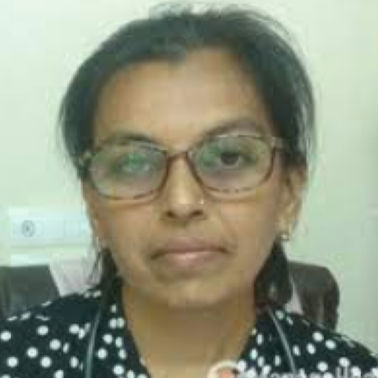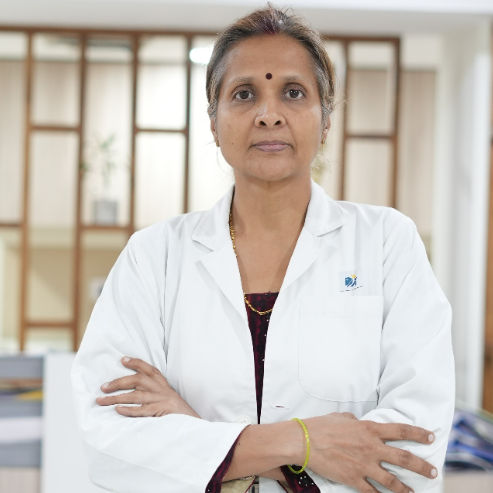World Ovarian Cancer Day 2025
Mark World Ovarian Cancer Day 2025 by spreading awareness, recognising early symptoms, and supporting research for better detection and treatment.

Written by Dr.Sonia Bhatt
Last updated on 3rd Jul, 2025

Introduction
Ovarian cancer is often called the "silent killer," and for good reason. It typically does not present noticeable symptoms in its early stages, making it one of the most difficult cancers to detect. However, as we approach World Ovarian Cancer Day 2025, the global health community is coming together to raise awareness, empower women, and encourage early detection in the fight against ovarian cancer.
Understanding Ovarian Cancer: What You Need to Know
Ovarian cancer begins in the ovaries, two small organs responsible for producing eggs and hormones like estrogen and progesterone. There are several types of ovarian cancer, but the most common is epithelial ovarian cancer, which starts in the outer layer of the ovary. Despite its relatively low incidence compared to other cancers, ovarian cancer is the fifth leading cause of cancer-related deaths in women worldwide.
Each year, nearly 300,000 women are diagnosed with ovarian cancer globally. Tragically, the survival rates are lower than those for many other cancers. This is primarily due to the fact that ovarian cancer often remains undetected until it has reached advanced stages, which can make treatment more challenging.
While these statistics are sobering, early detection and timely treatment can improve survival rates significantly. This is why raising awareness and taking preventive steps is more important than ever.
Risk Factors: Who Is at Higher Risk?
Understanding the risk factors for ovarian cancer is key to prevention and early detection. While all women can develop ovarian cancer, certain factors may increase the likelihood:
Age: Ovarian cancer risk increases with age, especially after the age of 50. It is most commonly diagnosed in women post-menopause.
Family History and Genetics: Women with a family history of ovarian or breast cancer may be at higher risk, especially if they have inherited mutations in the BRCA1 or BRCA2 genes.
Reproductive History: Women who have never been pregnant or who have had difficulty becoming pregnant may be at increased risk.
Hormone Replacement Therapy (HRT): Long-term use of HRT has been linked to a slightly increased risk of ovarian cancer.
Endometriosis: Women with endometriosis may have an increased risk of developing ovarian cancer due to the presence of abnormal tissue growth in the pelvic area.
Obesity: Being overweight or obese can increase the risk of ovarian cancer, particularly in postmenopausal women.
Spotting the Symptoms: Early Detection Saves Lives
Ovarian cancer often presents with vague symptoms that can easily be mistaken for less serious conditions. However, recognising these symptoms early is vital for effective treatment. Common signs include:
Bloating or swelling in the abdomen
Persistent pelvic or abdominal pain
Difficulty eating or feeling full quickly
Urinary symptoms (such as frequent urination or urgency)
Fatigue or unexplained weight loss
If you experience any of these symptoms persistently (especially for more than a few weeks), it is essential to consult a healthcare provider. Though these symptoms can also be related to other, more common conditions, early detection through medical evaluation can be life-saving.
Consult Top Specialists for Your Symptoms
Raising Awareness and Taking Action
Held every year on May 8th, World Ovarian Cancer Day serves as a global platform to raise awareness about ovarian cancer. This day brings together patients, healthcare professionals, caregivers, and advocates to share information, highlight the importance of early detection, and encourage research funding.
As we approach World Ovarian Cancer Day 2025, it is a reminder for everyone to take action:
Spread Awareness: Share information about ovarian cancer with family, friends, and colleagues. The more people know about the disease, the better chance we have at detecting it early and saving lives.
Encourage Screening: While there is no universal screening test for ovarian cancer, women with higher risk factors (such as family history or genetic mutations) should discuss screening options with their doctor. This might include pelvic ultrasounds or blood tests, such as the CA-125 test, though it’s important to note that these tests are not foolproof.
Get Informed: Knowledge is power. Educating yourself about ovarian cancer risk factors, symptoms, and prevention can help you advocate for your health. Talk to your healthcare provider about your personal risk factors and how often you should schedule check-ups.
Support Research and Advocacy: Supporting organisations that fund research into ovarian cancer can help bring new treatments and early detection methods to light. By contributing to the cause, you are part of the solution to improving outcomes for future generations of women.
Treatment Options: What to Expect If Diagnosed
Ovarian cancer treatment depends on several factors, including the stage of cancer, the type of ovarian cancer, and the patient’s overall health. The most common treatment methods include:
Surgery: Most women diagnosed with ovarian cancer will undergo surgery to remove the ovaries, fallopian tubes, and sometimes the uterus (a procedure called a hysterectomy). In some cases, surgery may also involve the removal of nearby lymph nodes and tissues.
Chemotherapy: After surgery, chemotherapy is often used to kill any remaining cancer cells. This is typically given intravenously, but in some cases, it can be administered directly to the abdomen (intraperitoneal chemotherapy).
Targeted Therapy and Immunotherapy: These newer treatments focus on targeting specific cancer cells or enhancing the body's immune system to fight the cancer. These therapies are becoming more common in the treatment of advanced ovarian cancer.
Hormone Therapy: For certain types of ovarian cancer, hormone therapy may be used to stop the cancer cells from growing by blocking the hormones that fuel their growth.
A Call to Action: Make a Difference Today
As we approach World Ovarian Cancer Day 2025, it’s crucial to remember that each of us has a role to play in the fight against ovarian cancer. Whether it’s spreading awareness, seeking early detection, supporting research, or simply learning more about this disease, your efforts can make a difference.
Remember, early detection can save lives. So, take action now, and encourage the women in your life to do the same. Together, we can improve survival rates and ultimately find a cure for ovarian cancer.
Key Takeaways
Ovarian cancer is often diagnosed too late due to subtle symptoms, making awareness and early detection crucial.
Risk factors include age, family history, reproductive health, and lifestyle choices.
World Ovarian Cancer Day on May 8th, 2025, is an opportunity to spread awareness, support research, and take action toward better outcomes for women globally.
Early detection and treatment options, including surgery, chemotherapy, and newer therapies, can significantly improve survival.
Stay informed, stay vigilant, and be part of the movement to raise awareness for ovarian cancer in 2025 and beyond. Together, we can help make a difference in the fight against ovarian cancer.
Consult Top Gynaecological Oncologists
Consult Top Specialists for Your Symptoms

Dr Swatika Kumari
Obstetrician and Gynaecologist
19 Years • MBBS, DGO, DNB Obstetrics & Gynaecology
Nashik
Apollo 24|7 Clinic - Maharashtra, Nashik

Dr. Priyanka Surisetty
Obstetrician and Gynaecologist
8 Years • MBBS, DGO
Visakhapatnam
Apollo 24|7 Clinic - Andhra Pradesh, Visakhapatnam

Dr. Shailaja L
Obstetrician and Gynaecologist
16 Years • MBBS, MS
Bangalore
Apollo 24|7 Clinic - Karnataka, Bangalore

Dr. Mona Yadav
Obstetrician and Gynaecologist
19 Years • MBBS, MD (Obstetrics & Gynaecology)
Dombivli
Nulife multispeciality, Dombivli

Dr. Parul Sharma
Obstetrician and Gynaecologist
8 Years • MBBS, MS (Obstetrics & Gynaecology)
New Delhi
THE DOCTORS NESST, New Delhi
Consult Top Gynaecological Oncologists

Dr. Rani Bhat
Gynaecological Oncologist
20 Years • MBBS, MS (Obs & Gyn), MRCOG (UK), Fellowship in Gynae-Oncology (Singapore) Fellowship in Gynae-Oncology & Robotic Surgery (Hong Kong) Diploma in Gynaecological Operative Endoscopy (France)
Bengaluru
Apollo Hospitals Bannerghatta Road, Bengaluru
(25+ Patients)

Dr. Rupashree Dasgupta. Gynaecological Oncology
Gynaecological Oncology & Robotic Surgery
26 Years • MD(Gold Medalist, CMC Vellore), DGO(Gold Medalist, CMC Vellore),DNB, MRCOG(London), MBBS(FOGSI Gold Medalist in Gynaecology).Specialist in Advanced Laparoscopic & Robotic Surgery, UICC Fellowship in Gynae Oncosurgery(BARTS Cancer Institute, LONDON), da Vinci certified training as ROBOTIC CONSOLE Surgeon(USA), Fellowship Gynae Oncosurgery(TMC, Kolkata)
Kolkata
Apollo Multispeciality Hospitals , Kolkata, Kolkata
(350+ Patients)

Dr. Sai Lakshmi Daayana
Gynaecological Oncologist
18 Years • MBBS, MRCOG
Hyderabad
Apollo Hospitals Jubilee Hills, Hyderabad
(200+ Patients)

Dr Bhawna Garg
Gynaecological Oncologist
26 Years • MBBS, MS, (PGI MS ROHTAK) FELLOWSHIP GYNECOLOGY ONCOLOGY, (CANCER INSTITUTE CHENNAI)
Delhi
Apollo Hospitals Indraprastha, Delhi

Dr. Swati Shah
Surgical Oncologist
15 Years • DNB Surgical Oncology, certified Robotic Cancer Surgeon
Ahmedabad
Apollo Hospitals Gandhinagar, Ahmedabad
(25+ Patients)
